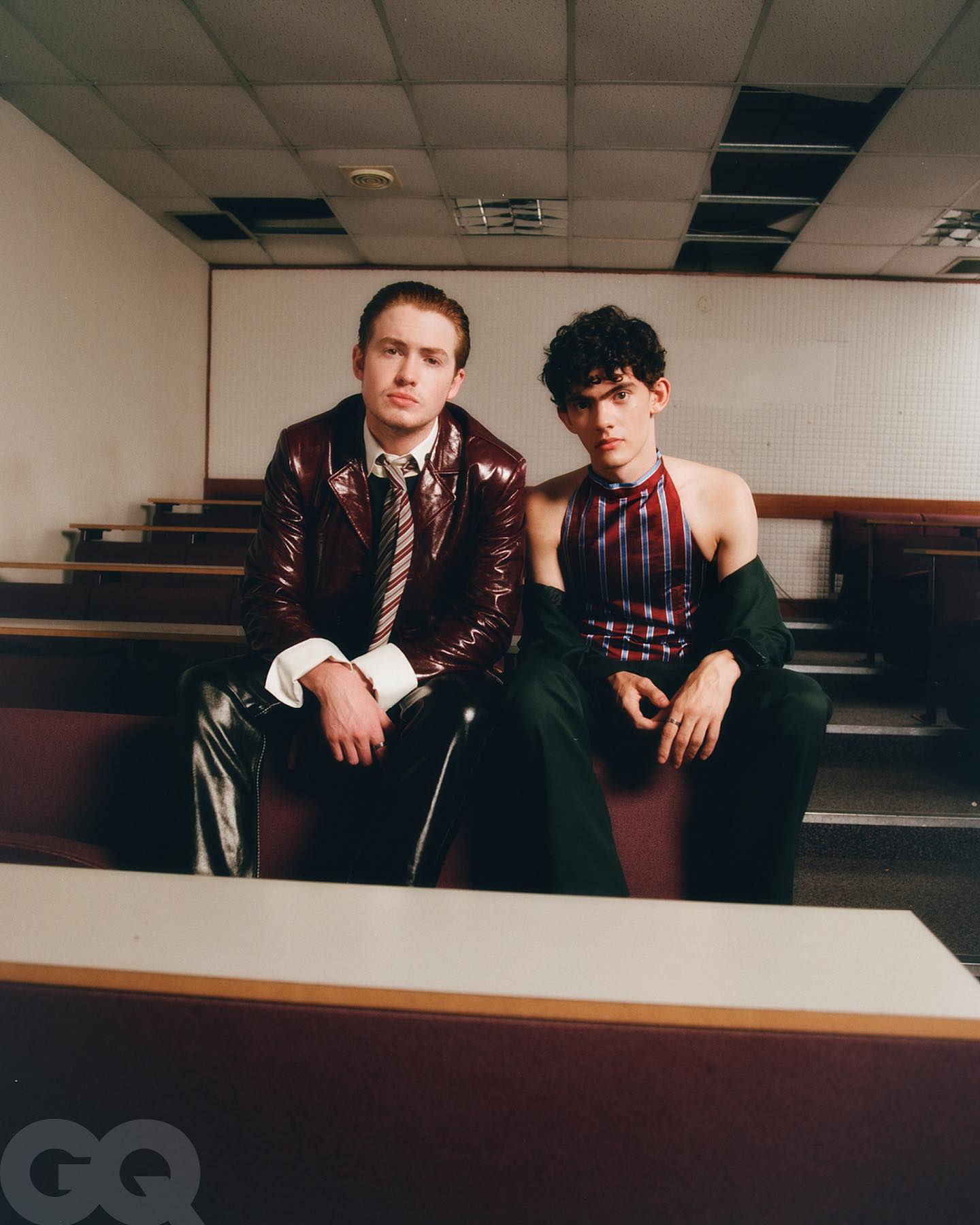
Life&Style writer Hannah Gadd discusses the dangers of assuming someone’s sexuality and wonders if younger celebrities are better off without social media
At only 18 years old, Kit Connor recently came out as bisexual due to pressure from fans following accusations of queerbaiting. He then went on to delete Twitter, describing it as a ‘silly app’. Connor plays bisexual Nick Nelson in Alice Oseman’s ‘Heartstopper’ – an 8-part series which sees the protagonists navigate school and sexuality. His performance has seen him winning awards and touching the hearts of many in the LGBTQ+ community.
Queerbaiting is a term commonly used to describe the actions of someone who doesn’t openly identify with the LGBTQ+ community but suggests they are part of it in order to attract a queer audience or following. Within recent years the internet has utilised ‘queerbaiting’ as a weapon for calling out and cancelling celebrities. Stars such as Harry Styles and Billie Eilish have been at the receiving end of these accusations. There was intense speculation surrounding Kit’s sexuality and suitability for the Heartstopper role after he was spotted holding hands with actress Maia Reficco, with many people claiming the teen star was queerbaiting.
This rightfully influenced conversation concerning bisexual erasure. This was because it was seemingly understood that Connor couldn’t be romantically paired with a woman and simultaneously queer-represent an unhealthy view of bisexuality. Writer of Heartstopper, Alice Oseman, responded to these accusations by tweeting, “I truly don’t understand how people can watch Heartstopper and then gleefully spend their time speculating about sexualities and judging based on stereotypes.”
“Whilst queerbaiting is inherently damaging to the queer community, it would be objectively unfair to say Kit Connor is doing so
Whilst queerbaiting is inherently damaging to the queer community, it would be objectively unfair to say Kit Connor is doing so. There is online discussion as to whether real life people can queer bait or if it is actually a term used to identify harmful tropes in the media. Where it is clearly a marketing tactic, it is necessary to call out queerbaiting to increase healthy LGBTQ+ representation instead of exploiting fictional relationships to profit from a queer audience. This once again raises the question as to whether real people can queer bait: where a character may not be written as openly queer for profitable reasons, a human being has many reasons to protect their sexuality, including their own safety.
Social media provides a landscape for users to comment on the lives of those in the spotlight, including younger celebrities like Kit Connor. In an interview with GQ magazine, the 18 year-old said ‘In many ways it’s [social media] great, but as someone who’s in the public eye, if you look for people saying bad stuff about you, you’ll find it.’ This details how damaging social platforms can be to celebrities in every demographic. Our teenage years and early adult life is a self-defining time when we wrestle anxiety, insecurities and societal pressures.
To experience this in the eyes of the persistently criticising world of social media can only lead to a negative impact on a young celebrity’s mental health. The online environment demands authenticity yet perfection, activism and openness. Celebrities social media is increasingly becoming more challenging, and for those who are younger, it is seemingly impossible to manage both being famous and online.
“Whilst fans support celebrities and hold them close to their hearts, this can become intrinsically harmful when it extends into the personal lives of these public figures
The damaging nature of the online-sphere also sparks conversations about fan culture clashing with the private lives of celebrities. Whilst fans support celebrities and hold them close to their hearts, this can become intrinsically harmful when it extends into the personal lives of these public figures. Too often are the boundaries put up by celebrities torn down by fans who feel that they are entitled an insight into their personal affairs merely because they are a ‘fan’. The privacy of a celebrity should not be interfered with for the sake of media discussion, particularly when it involves young celebrities such as Kit Connor. In the midst of excitement and aggression, internet users forget to respect this sort of privacy and feel as though they ‘deserve’ answers to their undeniably personal questions.
Connor’s Heartstopper co-star Joe Locke said in a GQ interview that “someone making money out of rumours about who I – an 18-year-old boy – might be liking or talking to, [is] really gross and perverted.” This perfectly puts into words how predatory tabloids behave in order to cater to fan entitlement.
In an era where social media provides an environment abundant of toxicity and where users can conjure up masses of unmonitored hate, it is important that young celebrities take a stand against the harmful nature of the internet. Their choice to delete these apps consequently sparks conversation of cancel culture and could potentially discourage grossly personal fan entitlement into topics such as sexuality and identity. It is time we reassess the position of fans and celebrities in proximity to each other and from the words of Alice Oseman’s Heartstopper, “it’s very rude to speculate about people’s sexuality.”
Read More From Life&Style:
Is Twitter Dying? The Potential Downfall of the Platform

Comments